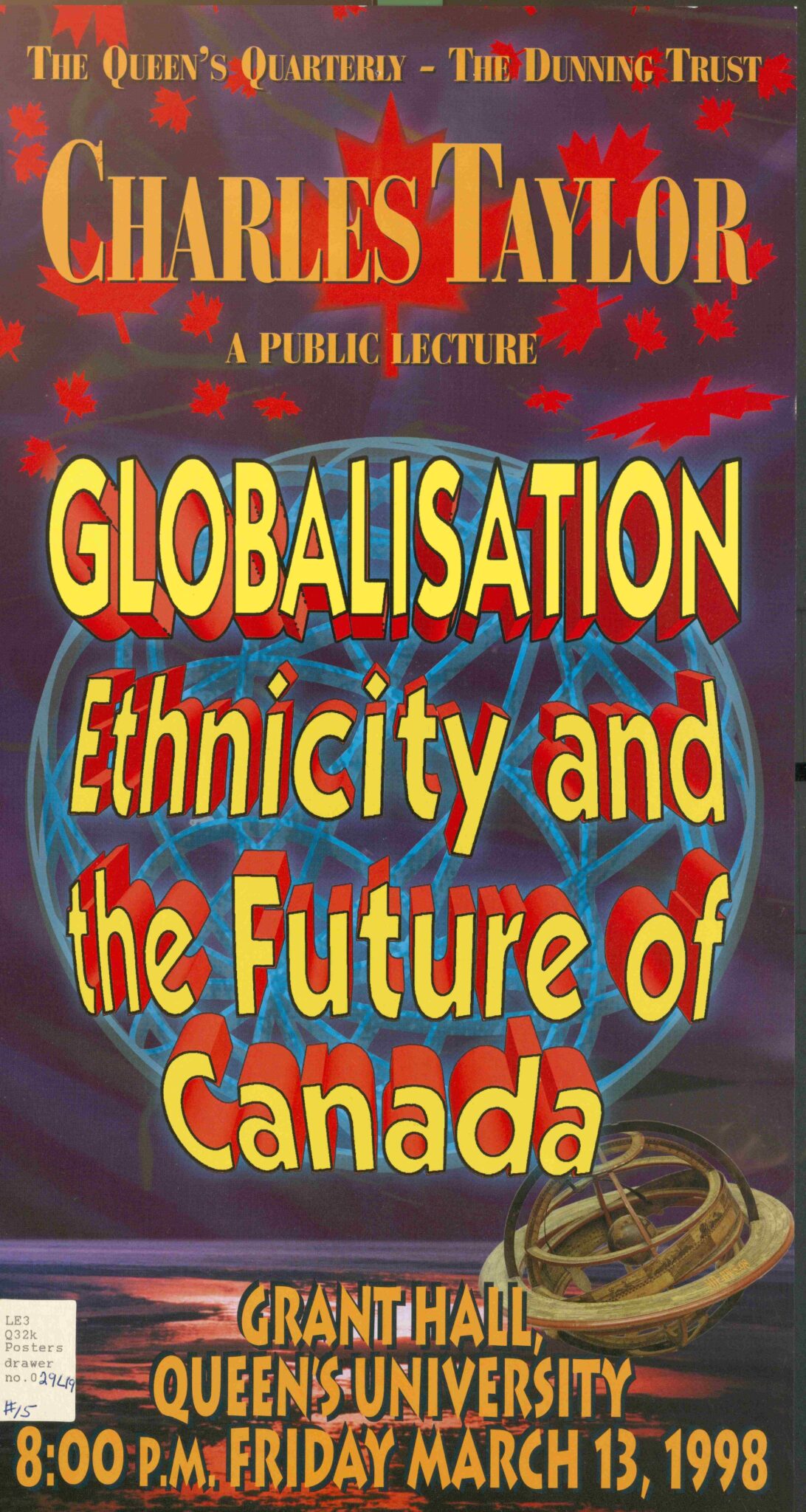
Charles Taylor is an Emeritus Professor of Philosophy at McGill University. From 1976-1978, he held the Chichele Chair at Oxford University before returning to Canada to participate in the Quebec referendum campaign of 1979-1980. He is the author of many books including Hegel and Society (1979) and The Malaise of Modernity (based on his 1991 CBC Massey Lectures), as well as Multiculturalism and the Politics of Recognition (1992). In addition to his major works, Taylor published a large number of shorter works on topics including freedom, democracy, nationalism, human rights, philosophical anthropology, cross-cultural understanding, moral theory, the philosophy of language, the philosophy of mind, and epistemology. He was active in the Canadian New Democratic Party and for Parliament several times. He served on the Quebec government’s French Language Council and in 2007–2008 co-chaired a public inquiry into the future of cultural and religious differences in Quebec. He was named a Companion of the Order of Canada in 1996.
Taylor’s lecture reflected on Canadian federalism in the wake of the two Quebec referendums. While the nation-state had provided both the ideals and the practical tools to enable citizens to realize their potential, he argued that the time had come to broaden those ideals and collectively devise the tools to realize their potential as citizens of the world. He discussed the many facets of globalization, including the penetration of markets, the development of world media space and a world public sphere, migration, and the diversification of countries. He discussed the rise of diasporic communities, suggesting that they had a novel approach to borders. He continued to see the state as important, because it was “the only tool citizens have to help ensure that their society is well positioned in the international market.” Canada was not at the end of federalism, but at a new beginning, requiring an attempt to forge unity in the face of new and multilayered differences. Political identity could no longer be made to coincide with the boundaries of states, Taylor argued for a shift to multinational societies in which citizens’ common identity includes a set of basic principles that all recognize. Canada would need to navigate this not only with reference to Quebec, but with Indigenous nations and growing multiculturalism.
Taylor’s lecture was on March 13, 1998.